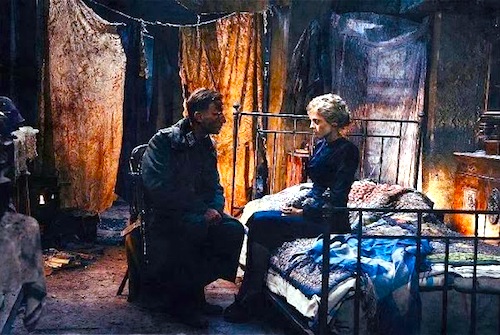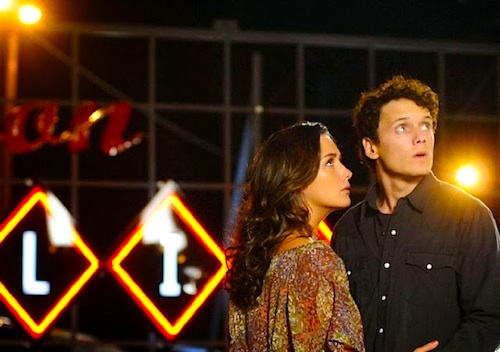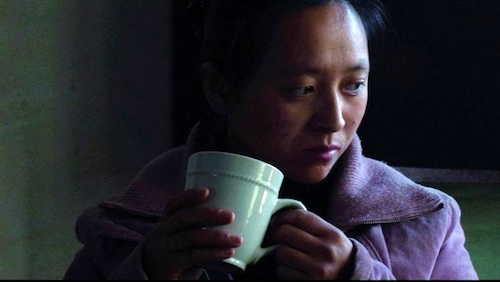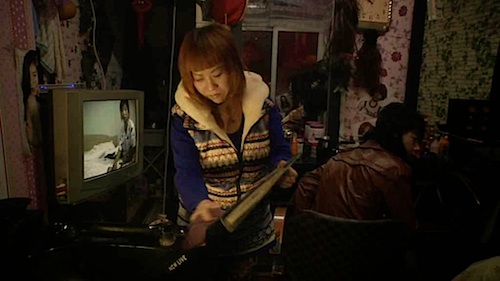By Joe Bendel. Those who question Russia’s commitment to sustainability should at least give them credit for recycling their titles. In 1989, Fedor Bondarchuk received one of his earliest acting credits in Yuri Ozerov’s Stalingrad. Twenty-some years later, the thesp-turned-director has helmed Russia’s first film produced entirely in 3D IMAX—and it happens to have the same title. It essentially ends the same way too, but some weird editorial choices distinguish Bondarchuk’s Stalingrad, Russia’s reining box office record holder, which opens today in New York.
In large measure, Bondarchuk’s Stalingrad is inspired by the heroic exploits of Pavlov’s House, the strategically located apartment complex doggedly defended by Sergeant Pavlov and his men. In this case, it is Captain Gromov and his comrades who have dug into a reinforced tenement right across from pretty much the entire German army. While most civilians have evacuated, the elfin Katia has defiantly remained, to stoke jealousy amongst Pavlov’s men and to give them something personal to fight for.
A few steps away, Captain Peter Kahn is tasked with crushing all pockets of Russian resistance. However, National Socialist war atrocities have dampened the Prussian elitist’s morale. He is more concerned with Masha, another Russian women stuck in the wrong place at the wrong time. In the tradition of bodice rippers, he initially “ravishes” her, but then starts to fall in love with the Russian beauty. She also seems to warm to him as a protector, but fears for the consequences if and when the Soviets expel the Germans.
Perhaps the weirdest element of Bondarchuk’s film is the framing device, in which a Russian emergency responder tells a group of Germans trapped in the rubble of the Tōhoku earthquake how his mother met his five fathers during the siege of Stalingrad, because nothing is more reassuring than episodes from the bloodiest battle in human history. Dude, next time, don’t help. Frankly, the way the film exploits Japan’s 3-11 tragedy would be deeply offensive, if it were not so ludicrous. Seriously, Russian rescue workers digging out Germans in Sendai?
On the plus side, Bondarchuk makes stuff blow-up really well. Obviously, he did not intend to waste his blank check in the IMAX store. He devises all sorts of dramatic perspectives on the action, while vividly capturing a sense of the claustrophobic nature of close quarters fighting. He is also either surprisingly fair to the Germans or simply lets Thomas Kretschmann run circles around the rest of the cast as the ethically nuanced Kahn.

Frankly, he represents the film’s most believably complicated character and develops some powerfully ambiguous chemistry with Yanina Studilina’s Masha. In contrast, Gromov and the other four fathers are all either colorless Reds or borderline war criminals. Either way, they make little lasting impression. It almost makes a viewer wonder if Bondarchuk set out to be deliberately subversive.
It seems unfathomable that a Russian WWII epic can make audiences sympathize with the Germans. Yet, if you close your eyes and think of Stalingrad a few days after taking it all in, it will be Krestchmann and Studlina whom the mind’s eye will recall. Nevertheless, Russia duly submitted Stalingrad as its official foreign language Oscar contender. Perhaps it is still preferably in Russia to declare a dubious victory than admit an obvious defeat. Sort of recommended in a confused way for those who appreciate battlefield spectacle, Stalingrad opens nationally today (2/28) including in New York at the AMC Empire and Lincoln Square theaters.
LFM GRADE: B-
Posted on February 28th, 2014 at 11:26am.




